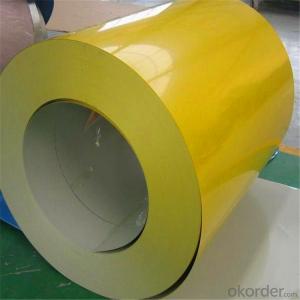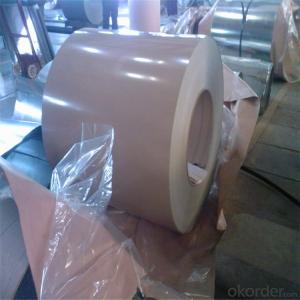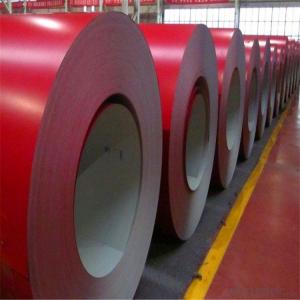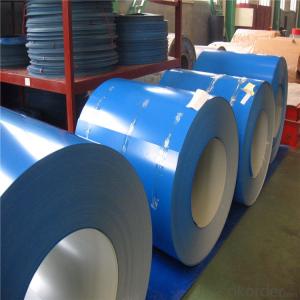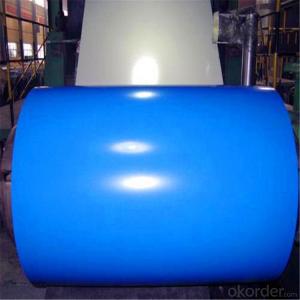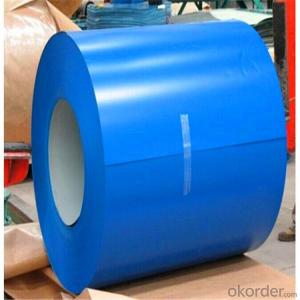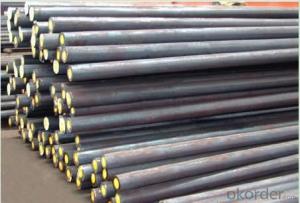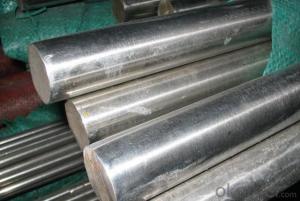Prime Pre-painted Galvanized Steel Coil PPGI
- Loading Port:
- Tianjin
- Payment Terms:
- TT OR LC
- Min Order Qty:
- 100 watt
- Supply Capability:
- 50000 watt/month
OKorder Service Pledge
OKorder Financial Service
You Might Also Like
Item specifice
Prime Pre-painted Galvanized Steel Coil PPGI
Description of Prime Pre-painted Galvanized Steel Coil PPGI
Product | PPGI/PPGL |
Capacity | 5,000 tons/month |
Base material | Hot dipped galvanized steel |
Thickness | 0.2-2.0mm |
Width | 600-1250mm(according to your need) |
Coil Weight | 3-6tons |
Quality | SGCC, DX51D |
Color | RAL No. or customers samples’ color |
Zinc-coating | 30g/m2-180g/m2 |
Coil ID | 508mm/610mm |
Technique | Cold rolled—hot dipped galvanized—color coated |
Painting | Top painting:15~25μm |
Back painting: 6~10μm | |
Tolerance | Thickness: +/-0.02mm |
Width:+/-2mm | |
Shipment time | within 15-45 workdays |
Payment | T/T, L/C at sight |
Packing | Standard export packing |
The special order can be negotiated. | |
Application of Prime Pre-painted Galvanized Steel Coil PPGI
APPLICATION OF OUR PREPAINTED STEEL | ||||||||||
Construction | Outside | Workshop,agricultural warehouse,residential precast unit | ||||||||
corrugated roof,roller shutter door,rainwater drainage pipe,retailer booth | ||||||||||
Inside | Door,doorcase,light steel roof stucture,folding screen,elevator,stairway,ven gutter,Construction Wall | |||||||||
Electrical applicance | Refrigerator,washer,switch cabnet,instrument cabinet,air conditioning,micro-wave owen,bread maker | |||||||||
Fuiniture | Central heating slice,lampshade,chifforobe,desk,bed,locker,bookself | |||||||||
Carrying trade | Exterior decoration of auto and train,clapboard,container,isolation lairage,isolation board | |||||||||
Qthers | Writing panel,garbagecan,billboard,timekeeper,typewriter,instrument panel,weight sensor,photographic equipment | |||||||||
Products Show of Prime Pre-painted Galvanized Steel Coil PPGI

Product Advantages
1.With nearly 20 years experience in prepainted steel, accommodate different marketdemands. | ||||||||||||||
2.'Quality first, service first' is our business aim; 'The good faith get respect,cast quality market' is our Business philosophy . | ||||||||||||||
3.Having two series producttion line,with the abbual production capacity of 240000 tons. | ||||||||||||||
4.Exceed International ISO9001:2008&ISO14001:2004 quality and environmental standards | ||||||||||||||
5.Meet with ROHS standard |
Company Information
CNBM International Corporation is the most important trading platform of CNBM group.
Whith its advantages, CNBM International are mainly concentrate on Cement, Glass, Iron and Steel, Ceramics industries and devotes herself for supplying high qulity series of refractories as well as technical consultancies and logistics solutions.


F A Q
1, Your advantages?
professional products inquiry, products knowledge train (for agents), smooth goods delivery, excellent customer solution proposale
2, Test & Certificate?
SGS test is available, customer inspection before shipping is welcome, third party inspection is no problem
3, Factory or Trading Company?
CNBM is a trading company but we have so many protocol factories and CNBM works as a trading department of these factories. Also CNBM is the holding company of many factories.
4, Payment Terms?
30% TT as deposit and 70% before delivery.
Irrevocable L/C at sight.
5, Trading Terms?
EXW, FOB, CIF, FFR, CNF
6, After-sale Service?
CNBM provides the services and support you need for every step of our cooperation. We're the business partner you can trust.
For any problem, please kindly contact us at any your convenient time.
We'll reply you in our first priority within 24 hours.
- Q:Can special steel be used for making renewable energy equipment?
- Yes, special steel can be used for making renewable energy equipment. Special steel alloys are often used in the manufacturing of components such as wind turbine towers, solar panel frames, and hydroelectric power plant structures. These alloys possess high strength, durability, corrosion resistance, and other properties necessary for withstanding the harsh environmental conditions and demands of renewable energy systems.
- Q:What are the requirements for special steel used in transportation equipment manufacturing?
- The requirements for special steel used in transportation equipment manufacturing are diverse and specific to the particular application in question. However, there are some common requirements that generally apply across the board. First and foremost, the special steel used in transportation equipment manufacturing needs to have high strength and durability. It must be able to withstand the rigorous demands of transportation, including heavy loads, vibrations, and impacts. Special steel with a high tensile strength and toughness is essential to ensure the structural integrity and safety of the transportation equipment. Secondly, the special steel must possess excellent corrosion resistance. Transportation equipment is exposed to various environmental conditions, including moisture, salt, chemicals, and extreme temperatures. Corrosion can lead to the deterioration and weakening of the steel, compromising the performance and longevity of the equipment. Therefore, using corrosion-resistant special steel is crucial to ensure the durability and reliability of transportation equipment. Additionally, the special steel used in transportation equipment manufacturing should have good weldability and formability. It must be able to be easily shaped, fabricated, and joined together through welding or other methods. This allows for the efficient production of complex structures and components, enabling the manufacturing of transportation equipment with intricate designs and specifications. Moreover, the special steel should also possess good fatigue resistance. Fatigue failure can occur due to repeated loading and unloading cycles, which is a common occurrence in transportation equipment. The special steel should be able to withstand this cyclic loading without undergoing fatigue cracks or failure, ensuring the long-term reliability of the equipment. Lastly, special steel used in transportation equipment manufacturing must comply with industry standards and regulations. Depending on the specific application and region, there may be certain legal requirements and safety standards that need to be met. These could include certifications, such as ISO, ASTM, or other relevant standards, to ensure the quality and performance of the steel. In summary, the requirements for special steel used in transportation equipment manufacturing include high strength, durability, corrosion resistance, good weldability and formability, fatigue resistance, and compliance with industry standards. Meeting these requirements is crucial to ensure the safety, reliability, and longevity of transportation equipment.
- Q:How is special steel used in the production of surgical instruments?
- Special steel is used in the production of surgical instruments due to its unique properties such as corrosion resistance, high strength, and ability to maintain sharpness. This steel is specifically designed to meet the demanding requirements of surgical tools, ensuring durability and precision during procedures.
- Q:What are the main factors affecting the fracture toughness of special steel?
- The main factors affecting the fracture toughness of special steel include the chemical composition, microstructure, heat treatment, and the presence of any defects or impurities in the material. Additionally, factors such as temperature, loading rate, and stress concentration also play a role in determining the fracture toughness of special steel.
- Q:What are the different wear-resistant grades of special steel?
- In the market, one can find various grades of special steel that are resistant to wear. Each grade has its own unique properties and applications. Some commonly used grades include: 1. D2 Steel: This grade is known for its high resistance to wear and its exceptional toughness. It is often utilized in the manufacturing of cutting tools, punches, and dies. 2. M2 Steel: M2 steel is a type of high-speed steel that exhibits remarkable resistance to wear and heat. It is commonly employed in the production of drill bits, milling cutters, and other tools that require high hardness and wear resistance. 3. A2 Steel: A2 steel is a versatile grade known for its excellent resistance to wear and toughness. It is frequently utilized in the manufacturing of cold work tools, such as blanking dies and gauges. 4. O1 Steel: O1 steel is an oil-hardening tool steel that possesses good wear resistance and dimensional stability. It is commonly used in the production of blades, punches, and other cutting tools. 5. S7 Steel: S7 steel is a grade that is highly resistant to shock and wear. It is often employed in the manufacturing of chisels, shear blades, and other tools that require resistance to impact and wear. 6. AR400 Steel: AR400 steel is a specific type of abrasion-resistant steel that has a hardness of approximately 400 Brinell. It is frequently utilized in heavy-duty applications such as mining equipment, bulldozer blades, and dump truck bodies. These examples merely scratch the surface of the various wear-resistant grades of special steel available in the market. The choice of grade depends on the specific requirements of the application, including the type and intensity of wear, operating conditions, and desired hardness. Seeking advice from a steel supplier or expert can aid in selecting the most suitable grade for a particular application.
- Q:How is high-temperature alloy steel used in the production of heat exchangers?
- High-temperature alloy steel is used in the production of heat exchangers due to its exceptional resistance to high temperatures and corrosion. It allows heat exchangers to efficiently transfer heat between two fluids while maintaining structural integrity. The alloy steel's properties, such as high strength and thermal stability, ensure long-lasting performance and reliability in demanding industrial processes.
- Q:What are the common challenges in heat treating titanium alloys?
- Heat treating titanium alloys can present several common challenges. One of the main challenges is the high reactivity of titanium with oxygen, nitrogen, and hydrogen at elevated temperatures. This reactivity can lead to surface contamination and the formation of undesirable oxides, nitrides, or hydrides, which can affect the mechanical properties of the alloy. Another challenge is the formation of alpha-case, a thick layer of alpha-phase titanium on the surface of the alloy during heat treatment. Alpha-case is brittle and can significantly reduce the fatigue strength and ductility of the material. Therefore, minimizing or eliminating the formation of alpha-case is crucial in heat treating titanium alloys. Furthermore, titanium alloys have a narrow temperature range for effective heat treatment. If the temperature is too low, it may not achieve the desired microstructure and mechanical properties. On the other hand, if the temperature is too high, it can lead to grain growth, which can reduce the strength and toughness of the alloy. Additionally, the heat treatment of titanium alloys often requires precise control of the heating and cooling rates to achieve the desired microstructure and properties. Rapid or uneven cooling can result in non-uniform microstructures, residual stresses, or distortion of the part. Finally, the cost of heat treating titanium alloys can be a challenge. Titanium alloys have a high affinity for oxygen, which necessitates the use of specialized equipment, such as vacuum furnaces or controlled atmosphere furnaces, to maintain a low oxygen environment. These specialized heat treatment processes can be expensive and require careful handling and maintenance to ensure the desired results. In conclusion, the common challenges in heat treating titanium alloys include managing reactivity with oxygen, nitrogen, and hydrogen, minimizing alpha-case formation, achieving the correct temperature range, controlling heating and cooling rates, and dealing with the cost of specialized equipment and processes. Overcoming these challenges is essential to obtain high-quality titanium alloy components with desired properties.
- Q:How is special steel used in the production of aircraft components?
- Special steel is used in the production of aircraft components due to its exceptional strength, durability, and resistance to corrosion. It is commonly utilized in critical areas such as engine components, landing gear, and structural parts where high performance and reliability are essential. The special properties of steel allow for the creation of lightweight yet strong components, ensuring the safety and efficiency of aircraft operations.
- Q:Can special steel be used for musical instruments?
- Yes, special steel can be used for musical instruments. Special steel alloys, such as stainless steel or carbon steel, can be utilized in the manufacturing of various musical instruments like drums, cymbals, or even certain parts of wind instruments. These steel alloys offer unique tonal qualities and durability, making them suitable for creating distinctive sounds and withstanding vigorous playing.
- Q:What are the different types of special steel?
- There are several different types of special steel, including stainless steel, tool steel, high-speed steel, alloy steel, and carbon steel. Each type has specific properties and characteristics that make it suitable for different applications and industries.
1. Manufacturer Overview |
|
|---|---|
| Location | |
| Year Established | |
| Annual Output Value | |
| Main Markets | |
| Company Certifications | |
2. Manufacturer Certificates |
|
|---|---|
| a) Certification Name | |
| Range | |
| Reference | |
| Validity Period | |
3. Manufacturer Capability |
|
|---|---|
| a)Trade Capacity | |
| Nearest Port | |
| Export Percentage | |
| No.of Employees in Trade Department | |
| Language Spoken: | |
| b)Factory Information | |
| Factory Size: | |
| No. of Production Lines | |
| Contract Manufacturing | |
| Product Price Range | |
Send your message to us
Prime Pre-painted Galvanized Steel Coil PPGI
- Loading Port:
- Tianjin
- Payment Terms:
- TT OR LC
- Min Order Qty:
- 100 watt
- Supply Capability:
- 50000 watt/month
OKorder Service Pledge
OKorder Financial Service
Similar products
New products
Hot products
Hot Searches
Related keywords
